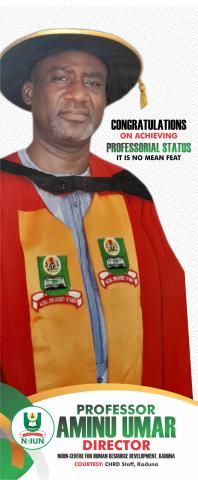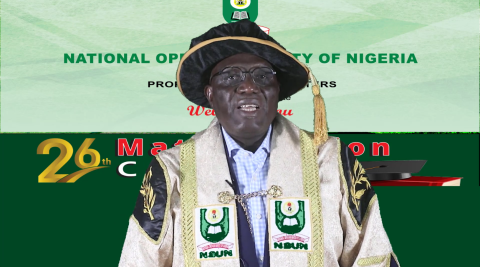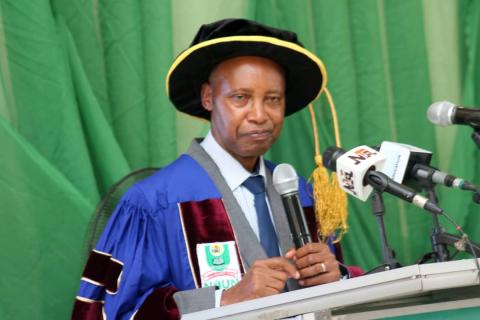Experts Advocate for Comprehensive National Migration Policy in Nigeria
Abuja, Nigeria - Leading migration specialists are imploring the Nigerian federal government to prioritize the development and implementation of a robust National Migration Policy. This policy, experts stress, should be meticulously crafted to align with established international frameworks and globally recognized best practices in migration management.
The urgency for such a policy stems from the need to directly address United Nations Sustainable Development Goals (SDGs), specifically Goal 10, which targets reduced inequalities, and Goal 8, focusing on decent work and sustainable economic growth. The call for action was a key takeaway from a recent international conference.
The recommendations were formally presented in a communique released following the conclusion of the 2025 International Conference on Migration and Sustainable Development: Problems & Prospects. The conference, a two-day event, took place at the National Open University of Nigeria (NOUN) Headquarters in Abuja from February 11th to 12th, 2025.
Organized by NOUN's Centre of Excellence in Migration and Global Studies, the conference featured an extensive program comprising a total of 21 sessions. This included three plenary sessions offering broad overviews, two poster sessions showcasing research, and sixteen parallel sessions delving into specific aspects of migration.
Prof. Gloria Anetor, Chair of the Local Organizing Committee, and Dr. Uguru Ibor, Chair of the Communique Committee, jointly signed the document. The communique emphasized the critical need for well-defined diaspora engagement policies designed to effectively harness the skills, knowledge, and financial resources of the Nigerian diaspora for the benefit of national development.
Furthermore, the communique strongly urged the government to make strategic investments in education, vocational training initiatives, and entrepreneurship programs. This investment is seen as crucial for creating sustainable employment opportunities, particularly for the nation's youth population.
The conference participants recommended that Nigeria actively pursue stronger bilateral agreements with other nations. The aim is to ensure the protection of the rights and overall welfare of Nigerian migrants residing abroad. Additionally, the communique highlighted the importance of public awareness campaigns, utilizing strategic communication methods, to educate citizens about the dangers associated with irregular migration and the advantages of pursuing legal migration pathways.
Key observations drawn from keynote addresses, lead papers, and discussions during the conference highlighted both the potential benefits and challenges of migration. These included discussions on the demographic dividend, framing migration as an opportunity rather than a threat, its impact on economic growth and remittances, and its role in human capital development.
Conversely, the conference also addressed the negative aspects associated with migration, such as the prevalence of irregular migration and the resulting brain drain, security concerns, unemployment and social strain on resources, inadequate policy frameworks, and the exploitation and abuse of migrants.
According to the communique, this year's conference achieved its objectives of fostering constructive dialogue and generating actionable policy recommendations aimed at effectively managing migration as a catalyst for positive national development.
The conference underscored the dual nature of migration, acknowledging the inherent challenges while emphasizing the significant opportunities it presents for economic growth, knowledge transfer, and enhanced international collaboration.





Share your thoughts about this post